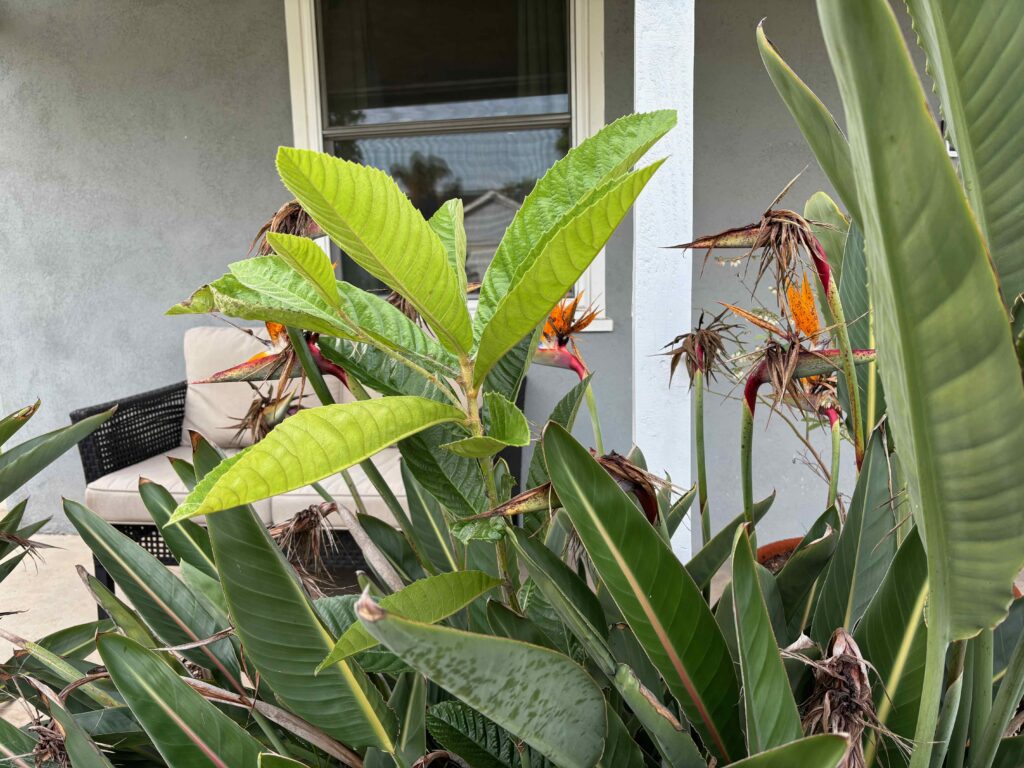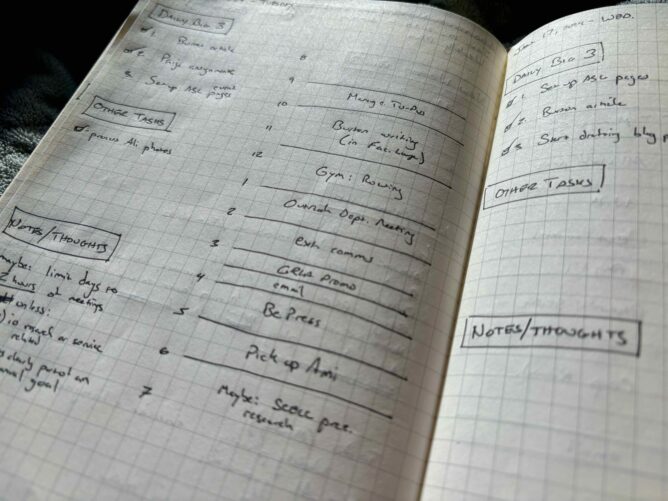Time is what keeps everything from happening at once.
Ray Cummings, The Time Professor (1921)
If you skimmed through my journals over the past 25 years, stopping every five years to take a look, you would likely discover five completely different ways of organizing my to-do lists. I’ve used notecards and notebooks, Remember the Milk and Todoist, plain text files and markdown. I’ve tried most systems under that sun. But regardless of the platform, I’ve usually modeled my process, to varying degrees, on David Allen’s Getting Things Done method. Since the introduction of time blocking, however, I’ve slowly moved away from the GTD workflow, focusing less on context-matching and more on prioritizing for the time I have in front of me.
My current system is a combination of Cal Newport’s time-blocking system and the format of the Full Focus notebooks. I add the fixed meetings to my schedule and then, examining the time I have open, determine the top 3 things I want to get done. There is a section for “other tasks” as time permits, and the rest of the page is dedicated to daily notes.
It’s a system that works amazingly well. It’s worth noting though that this is the “bottom of the stack” in my planning process. I make my daily plan each morning, but that’s after having already set my weekly, monthly, and quarterly plans in advance. So I don’t have to look at my full to do list (which I keep in Microsoft 360) and I can stay focused on what matters most. I would say 9 times out of 10, I get at least one thing from my “top 3” done every day, and more often than not, I complete all three.
What I’m reading
Cory Doctorow on Vice: “This is *not* the moment to be ‘social first.’ This is the moment for POSSE (Post Own Site, Share Everywhere), a strategy that sees social media as a strategy for bringing readers to channels that *you* control.”
Call it spoons, call it energy, or: “If you give your fucks to the unliving—if you plant those fucks in institutions or systems or platforms or, gods forbid, interest rates—you will run out of fucks.”
Adam Kotsko on students’ reading habits: “Large-scale prose writing is the best medium we have for capturing [the world’s] complexity, and the education system should not be in the business of keeping students from learning how to engage effectively with it.”
Benjamin Santos Genta on metaphors: “We owe it to ourselves and others to reflect on the appropriateness of the metaphors we employ to frame the world. These choices – conscious or not – can be constructive or disastrous.”
Garden update

Sneaky little bastard. When we first moved into our house over a decade ago, there was a loquat tree in the backyard. It was one of the first plants I removed because it was growing in and among two other plants. It’s not a fruit I enjoy, but they are all over the neighborhood, so I’m sure this was the result of an errant seed dropped from above.
Links to the past
- 2 years ago: I was enjoying late winter flowers and so many oranges.
- 4 years ago: The first daffodils were coming up. They arrived this year about 2 weeks ago.
- 9 years ago: I was trying way too hard in my research instruction classes.
Overheard online
Occasionally I see posts that look like this: “I’m just starting my MLIS and I don’t know if I should specialize in cataloguing VHS tapes or storytimes for dogs. What do you think I should do?????” Just take courses you think are interesting and take whatever job you can get when you graduate.
MidniteLibrary on Mastodon
